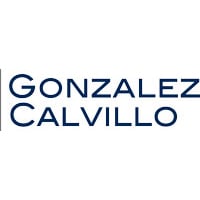

Partner | Ropes & Gray



Nicholas M. Berg
Partner | Ropes & Gray
Partner and Latin America Initiative co-coordinator | Ropes & Gray LLP
Number of years practice: 14 Principal practice areas: Anti-Corruption and International Risk; Government Enforcement/White-collar Criminal Defense; Corporate and Securities Litigation; Business and Commercial Litigation; Securities and Futures Enforcement Bar admissions:...
Number of years practice: 12 Law school attended: Georgetown University Law Center Languages spoken: English and Spanish (conversational) Principal practice areas: Anti-Corruption/International Risk, Government Investigations, Litigation Admissions: Illinois and US Court of Appeals (Sixth Circuit)
Within the anti-corruption and FCPA space, Ropes & Gray has been among the most active US firms in the Mexican market. Nick Berg has been a key figure in helping the firm to develop its expertise in Mexico-specific corruption issues, including those related to particular geographies and industries, such as the life sciences, oil and gas, asset management, and technology sectors. Berg has represented numerous multi-national companies in connection with complex corruption issues in almost every region in Mexico, investigating and successfully settling FCPA allegations against clients. He has been involved in large, high-profile anti-corruption matters involving the direct and indirect investments of major private equity firms in Mexican state-owned oil and gas, energy, and water companies. He has also spoken alongside senior advisors to Mexican president Enrique Peña Nieto and former members of the Mexican Supreme Court on Mexico’s latest anti-corruption reforms. Berg is a member of the steering group of the American Bar Association, Section of International Law’s International Anti-Corruption Committee and a member of the Securities Editorial Board at Law360, in connection with which he writes extensively on anti-corruption issues in Mexico and Latin America. What are your predictions for change in the US-Mexico relationship? This is a uniquely challenging time for US-Mexico relations. The next two and a half years are absolutely critical to the long-term relationship between the US and Mexico, given Trump’s upcoming inauguration and the forthcoming end of Peña Nieto’s presidency. I don’t anticipate that the relationship between the two countries will grow as sour as others expect; the US and Mexico have fundamental reasons to work together. Despite some statements from politicians on both sides of the border, the two countries are interdependent, and it isn’t in either country’s interest to significantly disrupt the relationship. That said, even if President Trump cannot get many of his campaign promises through Congress, his rhetoric, particularly regarding NAFTA, the border wall, remunerations back to the US, and his contempt for Mexican immigrants to the US, will present significant economic and political challenges to that relationship, which may very well be exacerbated should a very left-wing regime come to power in Mexico after Peña Nieto’s tenure. That very well may happen and, if so, it will be at least in part due to Trump’s rhetoric. Are there any aspects of the Mexican legal market that you would like to see change? Overall, I view Mexico as a very good place to do business for US firms and lawyers. With more multi-national companies based in the US and Mexico focused on anti-corruption issues in Mexico, I have seen an increase in law firms that are active in the market and that purport to specialize in anti-corruption issues and FCPA, but don’t have the breadth or depth of experience to serve clients well, particularly with respect to internal investigations in Mexico, which have unique characteristics. However, as clients in the market become more sophisticated, I do think they are becoming more aware of the differences between these and more experienced firms. Is there a key economic factor or trend you regard as likely to impact the Mexican legal sector over the next 18 months? In the anti-corruption space, the biggest question is whether we will see truly independent and well-financed investigations of major corruption issues pursuant to Mexico’s new anti-corruption regulations, which contemplate an independent anti-corruption prosecutor. If we do, that would be a “game changer” for companies doing business in Mexico. More broadly, there will be very significant changes to the Mexican legal sector should the Trump administration spur a repeal of NAFTA or should Congress ban or heavily tax remittances to Mexico from the US. Are there any sectors you regard as likely growth areas for the Mexican market over the next five years? Barring any major calamities after Trump’s inauguration, we expect to see increased investment by private equity firms and other firms with sufficient capital to invest, particularly with the devaluation of the Mexican peso. There are deals to be had for sophisticated, seasoned investors who have experience with and are comfortable in the market. If the value of the peso remains low, investors will generally act, notwithstanding concerns about Trump, as the fundamentals are there: (1) Mexico’s proximity to the US and long-established trading ties to the US; (2) the relatively young, skilled work force in Mexico; and (3) the quality and value of Mexican labor and services. A repeal of NAFTA would have a significant negative impact on any such investment but, in the long term, even that can be overcome.